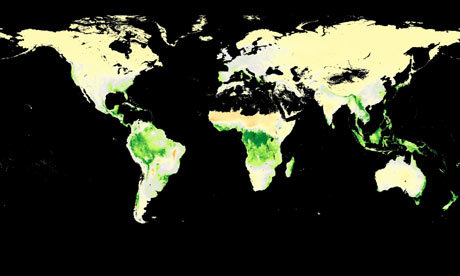Fish caught near wastewater treatment plants serving five major U.S. cities had residues of pharmaceuticals in them, including medicines used to treat high cholesterol, allergies, high blood pressure, bipolar disorder and depression, researchers reported Wednesday.
Findings from this first nationwide study of human drugs in fish tissue have prompted the Environmental Protection Agency to significantly expand similar ongoing research to more than 150 different locations.
Pharmaceuticals found in fish across U.S.
UK population must fall to 30m, says Porritt
JONATHON PORRITT, one of Gordon Brown’s leading green advisers, is to warn that Britain must drastically reduce its population if it is to build a sustainable society.
Porritt’s call will come at this week’s annual conference of the Optimum Population Trust (OPT), of which he is patron.
“Each person in Britain has far more impact on the environment than those in developing countries so cutting our population is one way to reduce that impact.”
Population growth is one of the most politically sensitive environmental problems. The issues it raises, including religion, culture and immigration policy, have proved too toxic for most green groups.
Privatising Water is Denying People a Human Right: UN
 Ms Barlow, who is also the national chairperson of the Council of Canadians, delivered the president's message to the People's Water Forum, a counter-forum being held by hundreds of civil society members from nearly 70 countries whose voices have not been at the WWF. The speech was later released to the World Water Forum, which is being attended by 20,000 delegates from 150 countries.
Ms Barlow, who is also the national chairperson of the Council of Canadians, delivered the president's message to the People's Water Forum, a counter-forum being held by hundreds of civil society members from nearly 70 countries whose voices have not been at the WWF. The speech was later released to the World Water Forum, which is being attended by 20,000 delegates from 150 countries.
Report: Energy production choking bird population

Greenland thaw among feared climate shifts by 2200
A drastic climate shift such as a thaw of Greenland's ice or death of the Amazon forest is more than 50 percent likely by the year 2200 in cases of strong global warming, according to a survey of experts.
The poll of 52 scientists, looking 100 years beyond most forecasts, also revealed worries that long-term warming would trigger radical changes such as the disintegration of the ice sheet in West Antarctica, raising world sea levels.
With No Long-Term Solution, Nuclear Pallbearers Bury Waste in America's Backyard
 According to the Department of Energy, there is enough spent nuclear waste in the United States to fill a football-field-sized hole 15 feet deep. From a plethora of proposals, scientists and politicians have selected on-site storage as the safest solution for the buildup. But it's a temporary solution. The waste will be fatal to humans and other animals for tens of thousands of years — yet the storage tombs are expected to last only a hundred years.
According to the Department of Energy, there is enough spent nuclear waste in the United States to fill a football-field-sized hole 15 feet deep. From a plethora of proposals, scientists and politicians have selected on-site storage as the safest solution for the buildup. But it's a temporary solution. The waste will be fatal to humans and other animals for tens of thousands of years — yet the storage tombs are expected to last only a hundred years.
These scattered nuclear graveyards are emblematic of a failed U.S. nuclear energy policy — a policy that is rarely discussed even as regulators entertain proposals to build roughly 30 new nuclear power plants.
Carbon-neutral goal for Maldives
 The Maldives will become carbon-neutral within a decade by switching completely to renewable energy sources like wind and solar power, its leader has said.
The Maldives will become carbon-neutral within a decade by switching completely to renewable energy sources like wind and solar power, its leader has said.
Amazon could shrink by 85% due to climate change, scientists say
 Global warming will wreck attempts to save the Amazon rainforest, according to a devastating new study which predicts that one-third of its trees will be killed by even modest temperature rises.
Global warming will wreck attempts to save the Amazon rainforest, according to a devastating new study which predicts that one-third of its trees will be killed by even modest temperature rises.
More...
'More bad news' on climate change
 More bad news on climate change is expected as more than 2,000 climate scientists gather in Copenhagen.
More bad news on climate change is expected as more than 2,000 climate scientists gather in Copenhagen.
The scientists are concerned that the 2007 reports of the Intergovernmental Panel on Climate Change (IPCC) are already out of date. Their data suggests greater rises in sea levels this century.
More Articles...
Page 143 of 157

 Environmental News Archive
Environmental News Archive


































